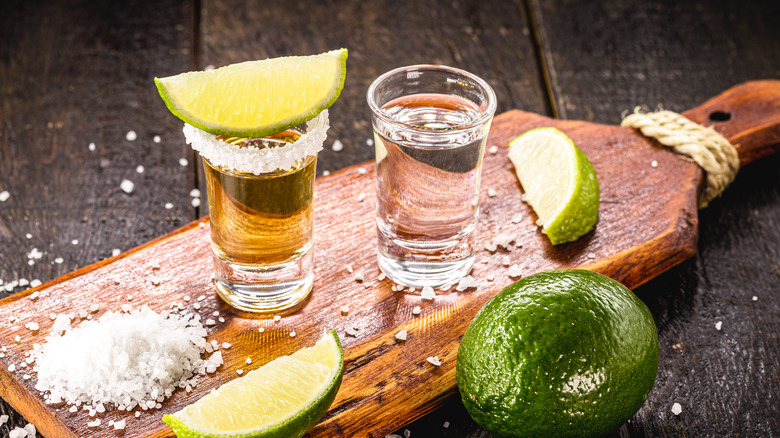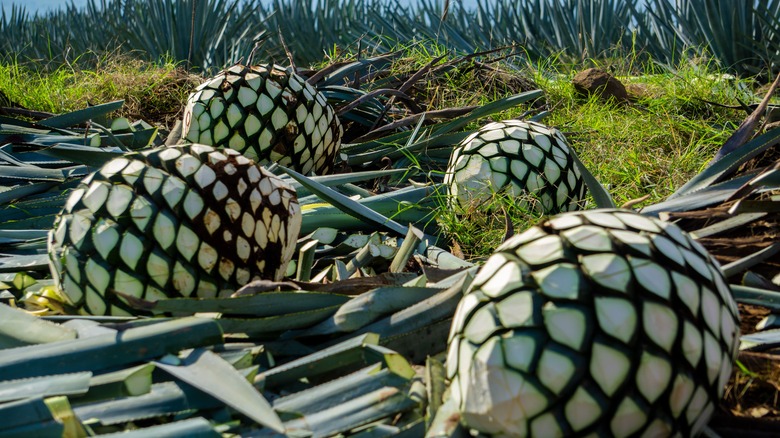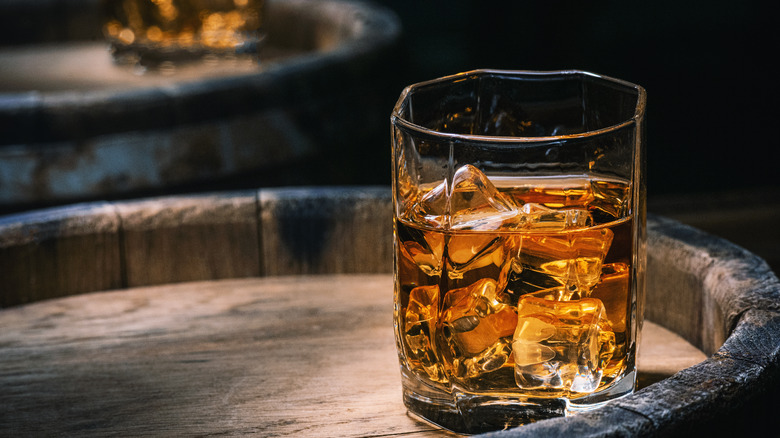The Mysterious Origins Of The Word Tequila
Word origins are typically not a mysterious subject — human language being what it is, we can generally trace pretty much anything. This is true for names, of course, but it also applies to language generally. It helps when most words we use in European languages derive (sooner or later) from Latin, and this is true of unrelated languages as well. Even with loan words in English, we can generally trace them pretty well.
But there are a few loan words where we just don't know where they came from, even in their original language. One of the most mysterious is the word for a distilled beverage you might have in your home that you've definitely had before if you've ever enjoyed a margarita. The fact is, we don't know what the word "tequila" means. We know where the product comes from, but the word itself is a whole lot more of an enigma.
Though we know its geographic origin, tequila still vexes historians
We'll get this out of the way first: Tequila is a small town in Jalisco, Mexico, and that's where the drink originally came from. Made from the hearts of the agave plant, tequila was first distilled in the 18th century. Tequila is a type of mezcal, and the latter we actually do know the origin for: "mezcal" is a Nahuatl word meaning "oven-cooked agave." But while tequila is mezcal, mezcal is not tequila — it's just the word for all agave-distilled spirits.
The Nahuatl are important here because they're the original natives of the region. But from there it gets weird, because it turns out, nobody seems to agree on what the word "tequila" means. It could come from a combination of the Nahuatl words "tequitl" (meaning "work" or a "task") and "tlan" (meaning "place"), making it essentially "place of work," which is descriptive if brusque. Other sources think that it means "the rock that cuts," which is cool if a bit confusing. And still other sources think it translates to "the place of wild herbs," "the place of harvesting plants," or "the place where they cut." While there are obvious commonalities between those translations, they're all clearly distinct, and that doesn't usually happen with word origins.
It's unusual among alcohol words that we can't pinpoint tequila
Happily (or unhappily, if you're a big fan of etymological mysteries), we know the origins of most words for other types of spirits. "Whiskey" is derived from the Gaelic term "uisge beatha," which means "water of life." "Scotch" is even easier to pinpoint: it's just a shortening of the word "Scottish." "Bourbon," a uniquely American creation, is easy, too: It comes from the French Bourbon kings (the dynasty Louis XIV, the Sun King, was part of), and the American South (particularly Louisiana) has long connections to France. "Gin," meanwhile, is derived from the Dutch word "genever" or the French version, "genièvre" — both of which are the words for juniper, the berries that give gin its distinctive flavor. "Vodka" is, hilariously, just a slightly tweaked translation of "voda," the Russian word for "water."
In fact, the only other major spirit where we don't really know the origin of its name is "rum." There's a Devonshire, England word "rumbullion," which means a "tumult" or "uproar," so it could be that — the drink certainly has a tendency to cause one. But it could also be "berummaged," a Dartmoor word for "confused" (again, pretty apt). "Rum" is also a slang word dating from the 16th century that just means "great," which is another possibility. Just about all we know for sure is that the term was first used by English settlers in Barbados for the drink they distilled from sugar.


